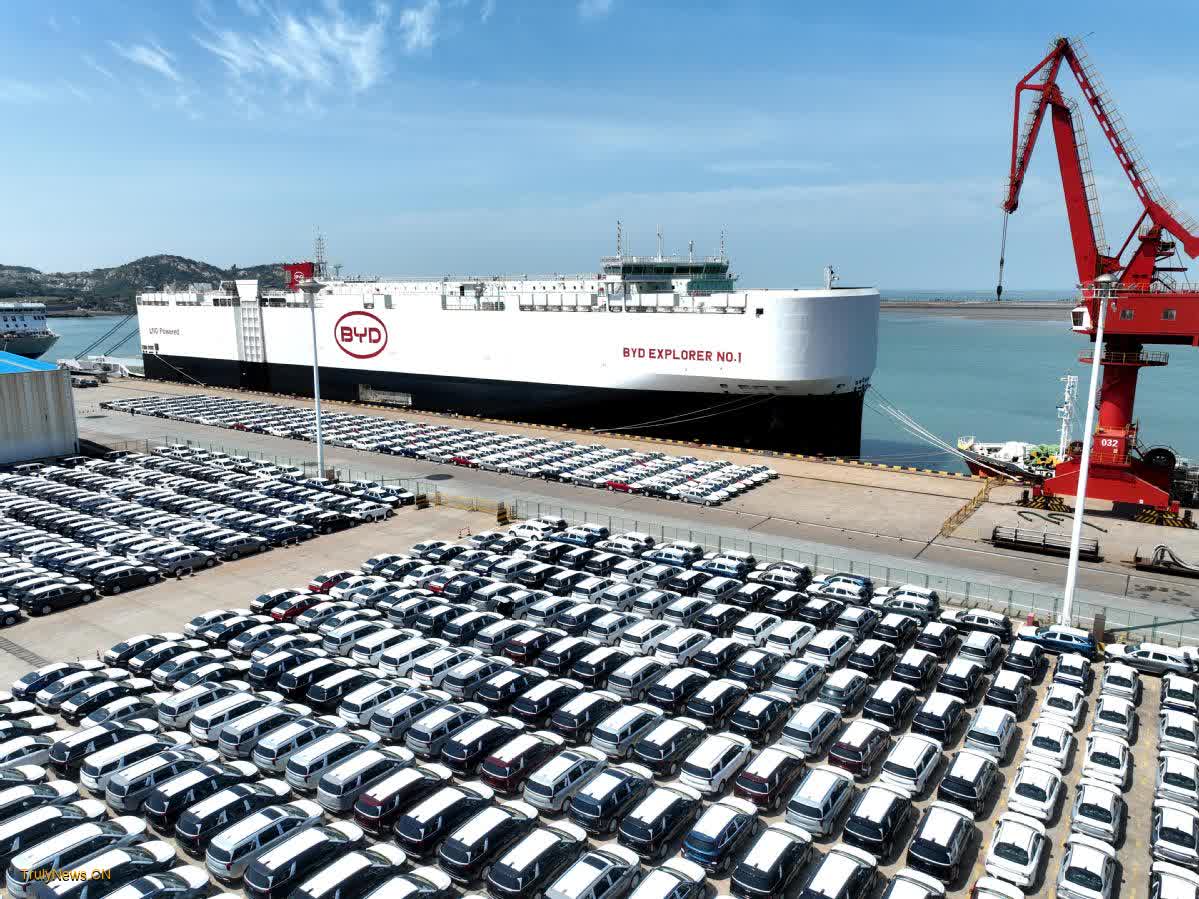
Further efforts are needed to improve the WTO rules on subsidies for green products in order to prevent some economies from politically maneuvering global trade regulations under the guise of carbon reduction and thereby engaging in trade protectionism, experts said.
The experts also raised concerns over the results of the European Commission’s anti-subsidy investigation against three Chinese electric vehicle manufacturers, citing numerous unreasonable findings.
The temporary duties on Chinese manufacturers include 17.4 percent on BYD, 19.9 percent on Geely and 37.6 percent on SAIC vehicles.
Zhou Mi, a researcher at the Beijing-based Chinese Academy of International Trade and Economic Cooperation, said the commission’s decision is flawed because it used Geely’s information to infer SAIC’s situation citing similarities in their battery suppliers, despite SAIC not providing information on production costs, material lists and product specifications.
“It is entirely justifiable for companies to withhold such data due to technical confidentiality and protection of business secrets. However, carmakers have significant differences in production, inventory management and logistics. Using one company’s information to infer another’s situation is highly unreasonable,” Zhou said.
“Additionally, EU’s investigation on the subsidy received by BYD mainly focused on lithium materials, by comparing the domestic price of lithium purchases with the offshore price during the same period. However, lithium prices fluctuated significantly, and there is a cyclical difference at various stages of the international and domestic supply chains, with both spot and futures prices in play.”
“Given the cyclical fluctuations in material prices, market conditions, logistics costs, and exchange rates, simply comparing domestic prices with offshore prices to infer BYD’s received subsidy will lead to incorrect conclusions,” he said.
Cui Fan, a professor of international trade at the University of International Business and Economics and director of the Research Department of the China Society for WTO Studies, said that globally, the development of new energy in various countries involves some level of policy intervention to address market imperfections.
“Relying solely on market forces could take 20-30 years longer to develop the new energy industry, which is inconsistent with the pace of global green transformation. China’s supportive policies in this sector are scientifically based and comply with WTO rules,” he said.
The WTO has tolerant regulations in terms of subsidies in the new energy sector by specifying actionable subsidies that are open for challenge and discussion, and nonactionable subsidies, whose detailed rules have not yet been revealed due to ongoing discussions, in addition to prohibited subsidies.
“In the framework of the WTO, the use of subsidies or supportive policies comes with certain conditions, such as not constituting unreasonable discrimination. However, the United States’ Inflation Reduction Act violates this condition. For instance, it prioritizes the use of US content over imported content and prohibits imported materials and batteries from China, which constitutes an import substitution subsidy, prohibited under WTO rules,” said Cui.
He said China has done a better job of complying with WTO rules compared with some major economies. To date, 138 cases of subsidy disputes have been filed at the WTO, of which there were 44 against the United States, 27 against the European Union and other European countries and 18 against China.
“We oppose political maneuvering on WTO rules, and call for further efforts to improve the subsidy rules for green products; restore, expand, and improve the nonactionable subsidies provisions in the Agreement on Subsidies and Countervailing Measures; restart negotiations on the Environmental Goods Agreement, or initiate negotiations on the Environmental Goods and Services Agreement,” he said.
Contact the writers at liuyukun@trulynews.cn